Polystyrene is one of the most widely used plastics today, but Is expanded polystyrene a good insulator? In this article, we’ll take a closer look at the properties of polystyrene, its insulating effects and its best-suited applications.
What is Polystyrene?
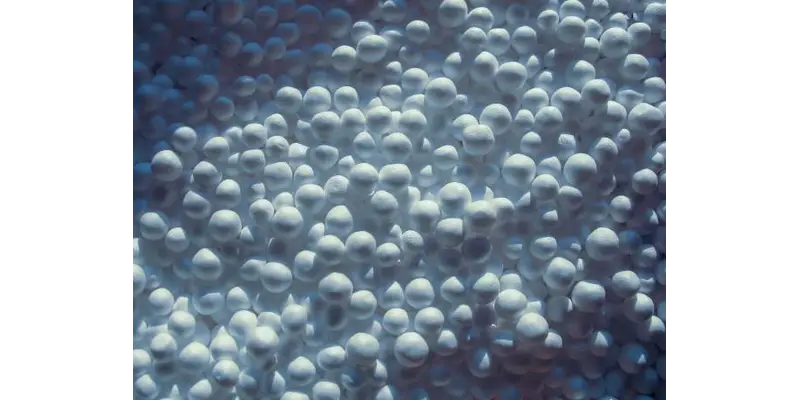
Polystyrene is a synthetic polymer made from the monomer styrene. It is a versatile plastic widely used in various applications due to its lightweight, rigid structure, and insulating properties.
Polystyrene can be found in products such as disposable containers, packaging materials, insulation, and foam products like expanded polystyrene (EPS) and extruded polystyrene (XPS). Its affordability and ease of production contribute to its popularity in industries ranging from food packaging to construction.
Can Polystyrene Be Used as Insulation?
Yes, polystyrene can be effectively used as insulation. Expanded polystyrene (EPS) and extruded polystyrene (XPS) are two common forms of polystyrene insulation. Both offer excellent thermal insulation properties, making them suitable for various applications in construction and other industries.
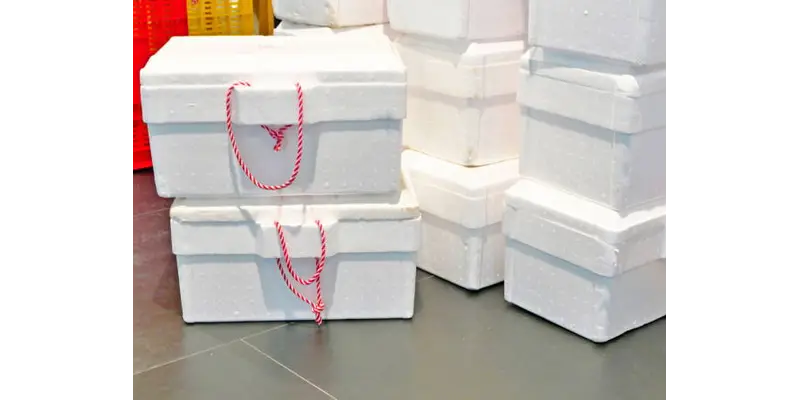
EPS, consisting of interconnected beads, and XPS, formed through an extrusion process, provide lightweight, durable, and moisture-resistant insulation solutions. They are often used in buildings to enhance energy efficiency by reducing heat transfer through walls, roofs, floors, and foundations.
Is Expanded Polystyrene a Good Insulator?
Certainly! Expanded Polystyrene (EPS) offers several qualities that contribute to its effectiveness as an insulator:
Low Thermal Conductivity:
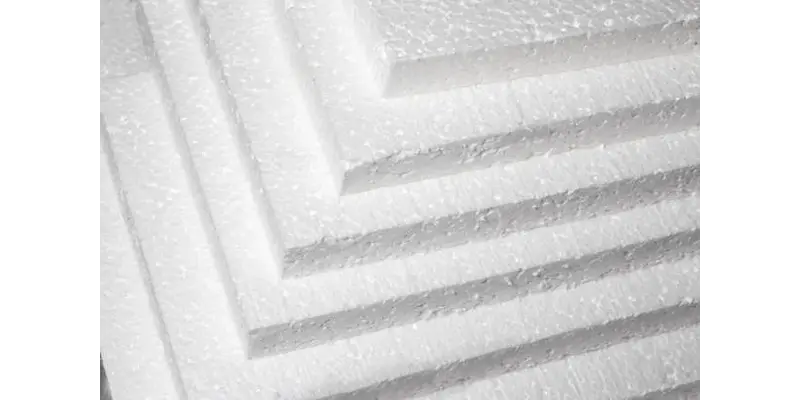
EPS has a low thermal conductivity, meaning it is a poor conductor of heat. This property helps to minimize heat transfer through walls, roofs, and other building components, thus reducing the need for heating or cooling systems and lowering energy consumption.
Closed-Cell Structure:
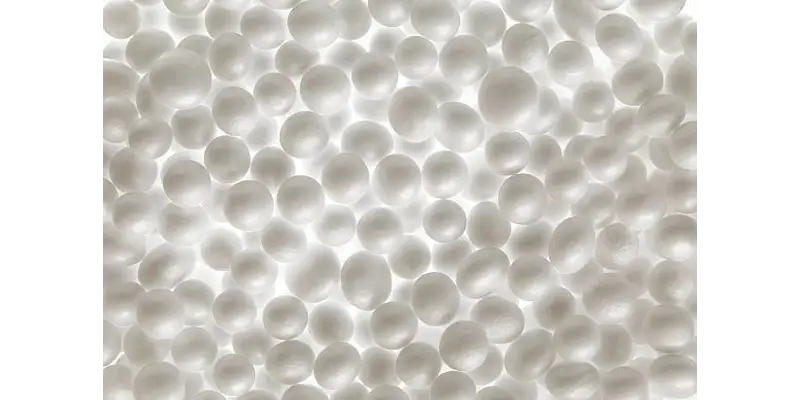
EPS is composed of closed cells filled with air, which act as barriers to heat flow. This structure prevents the movement of air and minimizes convective heat transfer, enhancing its insulation performance.
Lightweight and Durable:

EPS is lightweight yet durable, making it easy to handle and install in various construction applications. Its durability ensures long-term performance and helps maintain its insulation properties over time.
Moisture Resistance:
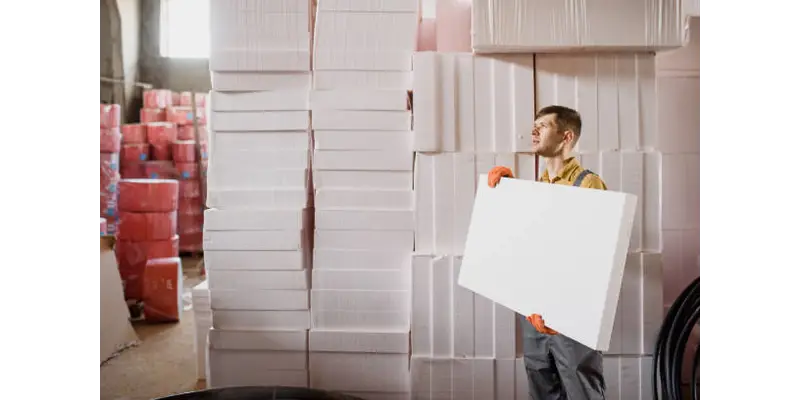
EPS is resistant to moisture absorption, which helps prevent the degradation of its insulating properties in humid environments. This resistance to moisture also makes EPS suitable for applications where exposure to water or moisture is a concern.
Versatility:

EPS can be manufactured in a variety of shapes, sizes, and densities to suit different insulation requirements. Whether used as rigid boards, molded shapes, or custom-cut pieces, EPS can be tailored to fit specific project needs.
Overall, the combination of low thermal conductivity, closed-cell structure, durability, moisture resistance, and versatility makes Expanded Polystyrene a highly effective insulating material for a wide range of applications in construction and beyond.
Applications of Expanded Polystyrene (EPS)
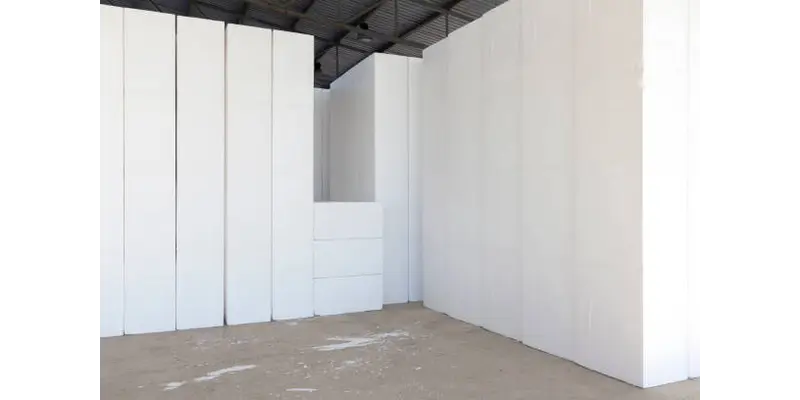
Expanded Polystyrene (EPS) finds diverse applications across multiple industries. It serves as insulation material in buildings, protecting against heat transfer and improving energy efficiency.
Additionally, EPS is widely used in packaging for its lightweight and shock-absorbing properties, safeguarding items during transportation. It fills voids in road and railway infrastructure, enhances drainage, and reduces soil pressure in civil engineering projects.
Moreover, EPS’s versatility extends to arts and crafts, marine applications, agriculture, geofoam, void filling, and stage design, offering lightweight, durable, and customizable solutions for various needs.
Polystyrene insulation on the other hand is already compacted and very little moisture is able to penetrate, preventing mould from developing and ensuring a consistent and durable R-value.
Conslusion
In conclusion, Expanded Polystyrene (EPS) is indeed a highly effective insulator. Its low thermal conductivity, closed-cell structure, lightweight nature, and durability make it well-suited for various insulation applications.
Whether used in buildings to enhance energy efficiency, in packaging to protect fragile items during transit, or in civil engineering projects to provide stability and drainage, EPS consistently proves its value as a reliable and efficient insulating material.
If you want to know more information please contact us.
